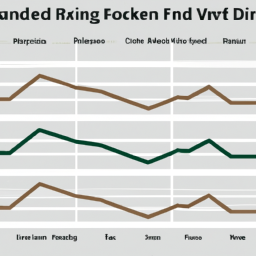An index fund is an investment fund – either a mutual fund or an exchange-traded fund (ETF) – that is based on a preset basket of stocks, bonds or other securities that represent a particular market or sector. These funds aim to track the performance of a specific financial index, such as the S&P 500 or the NASDAQ, rather than trying to beat the market with individual stock picking.
Index funds are an easy, low-fee way to invest. It might be the smartest and easiest investment you ever make. With low management fees and minimal trading costs, index funds are an attractive option for investors who want to build a diversified portfolio.
A combination of low fees and hard-to-beat performance makes these index funds great core portfolio building blocks. They offer investors exposure to a wide range of stocks or bonds, reducing the risk of putting all their eggs in one basket. Here are some of the top index funds to consider for your investment portfolio:
-
S&P 500 Index Funds: S&P 500 index funds are an excellent way to get diversified exposure to the heart of the U.S. stock market. These funds invest in the 500 largest publicly traded companies in the U.S. across various sectors, providing broad market exposure. Some popular S&P 500 index funds include Vanguard 500 Index Fund (VFINX) and iShares Core S&P 500 ETF (AMEX:IVV).
-
Total Stock Market Index Funds: Total stock market index funds track the performance of the entire U.S. stock market, including small, mid, and large-cap stocks. These funds are a great way to get broad exposure to the U.S. market and avoid the risk of missing out on the best-performing stocks. Some popular total stock market index funds include Vanguard Total Stock Market Index Fund (VTSMX) and Schwab Total Stock Market Index Fund (SWTSX).
-
International Stock Index Funds: International stock index funds provide exposure to stocks outside the U.S. These funds invest in a basket of stocks from different countries, offering diversification benefits and the potential for higher returns. Some popular international stock index funds include Vanguard Total International Stock Index Fund (VGTSX) and iShares MSCI EAFE ETF (AMEX:EFA).
-
Bond Index Funds: Bond index funds track a specific bond market index, such as the Barclays Aggregate Bond Index. These funds invest in a diversified basket of bonds, including government, corporate, and municipal bonds. Bond index funds are a great way to get exposure to the fixed income market and generate income. Some popular bond index funds include Vanguard Total Bond Market Index Fund (VBMFX) and iShares Core U.S. Aggregate Bond ETF (AMEX:AGG).
-
Real Estate Index Funds: Real estate index funds invest in a basket of real estate investment trusts (REITs) that own and manage income-producing properties. These funds provide exposure to the real estate market without the hassle of owning physical properties. Some popular real estate index funds include Vanguard Real Estate Index Fund (VGSLX) and iShares U.S. Real Estate ETF (AMEX:IYR).
Since its creation more than four decades ago, one market invention has become a go-to for many everyday investors: the index fund. The launch of the first commercially viable index fund by the late John “Jack” Bogle, founder and chairman of the Vanguard Group in 1976, changed the way people invest. Since the first modern mutual fund was launched in the U.S. investment landscape in 1924, investors have increasingly turned to these types of funds for their simplicity and low costs.
In conclusion, index funds are passively managed mutual funds that try to duplicate the performance of a financial index, like the S&P 500 or the NASDAQ. They are an easy, low-cost way to invest and offer investors exposure to a wide range of stocks or bonds. By investing in a combination of different index funds, investors can build a well-diversified portfolio that can potentially generate higher returns with lower risk. Though the stock market stumbled in 2022, it got off to a great start this year as many investors began to move out of defensive risk-off investments and into more growth-oriented ones. Consider adding index funds to your investment portfolio for long-term success.
